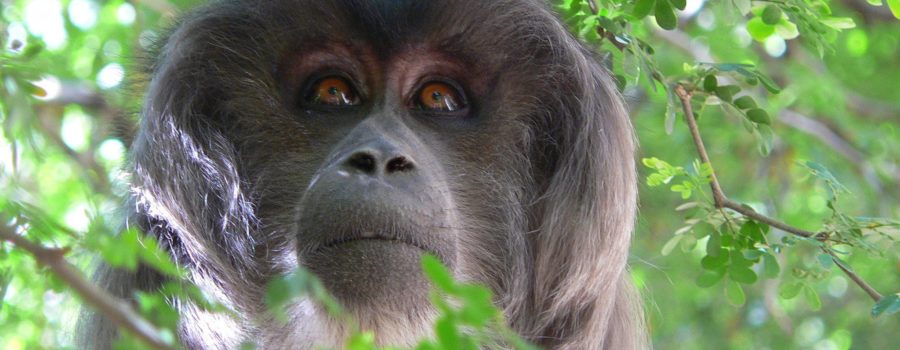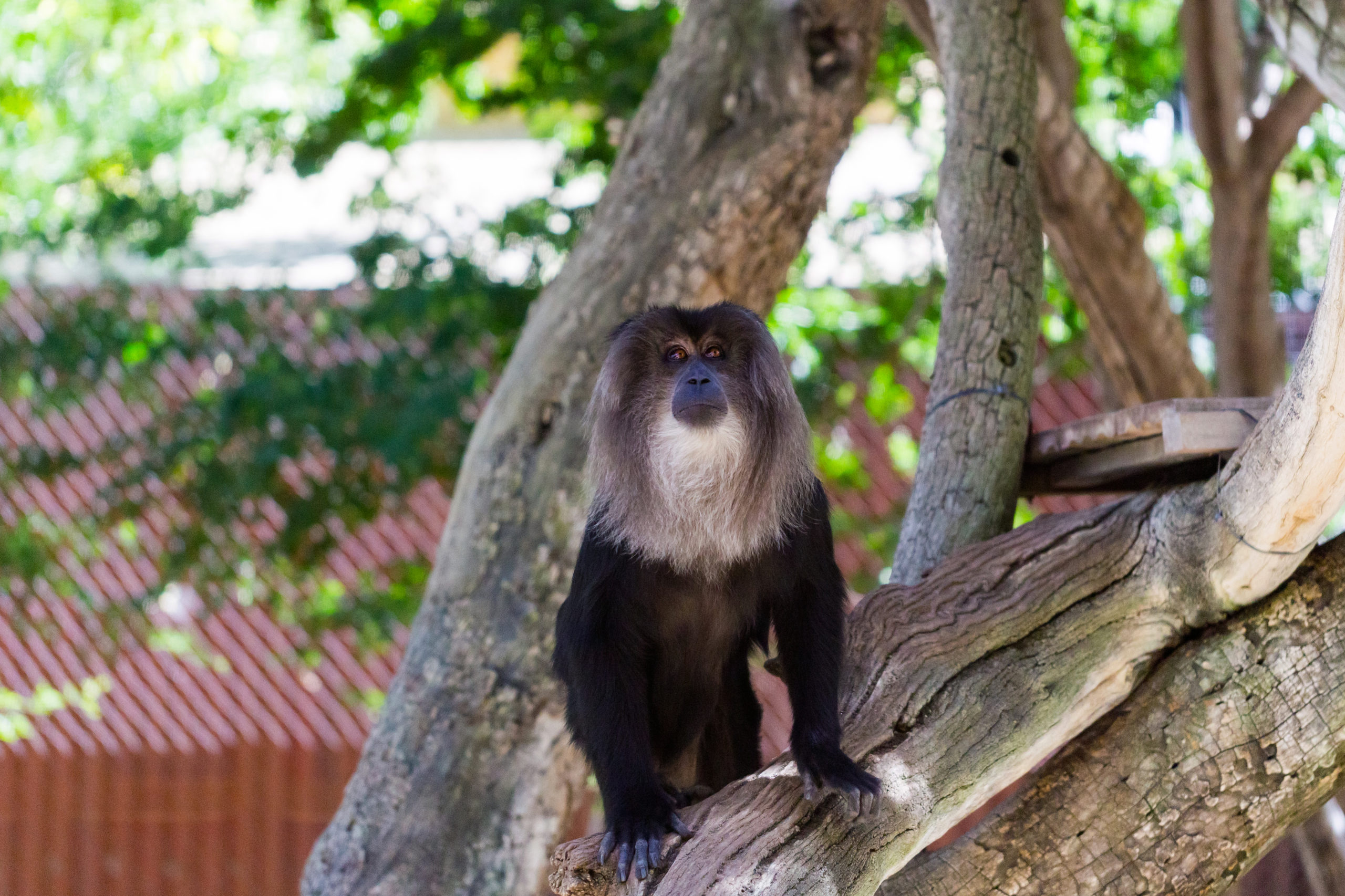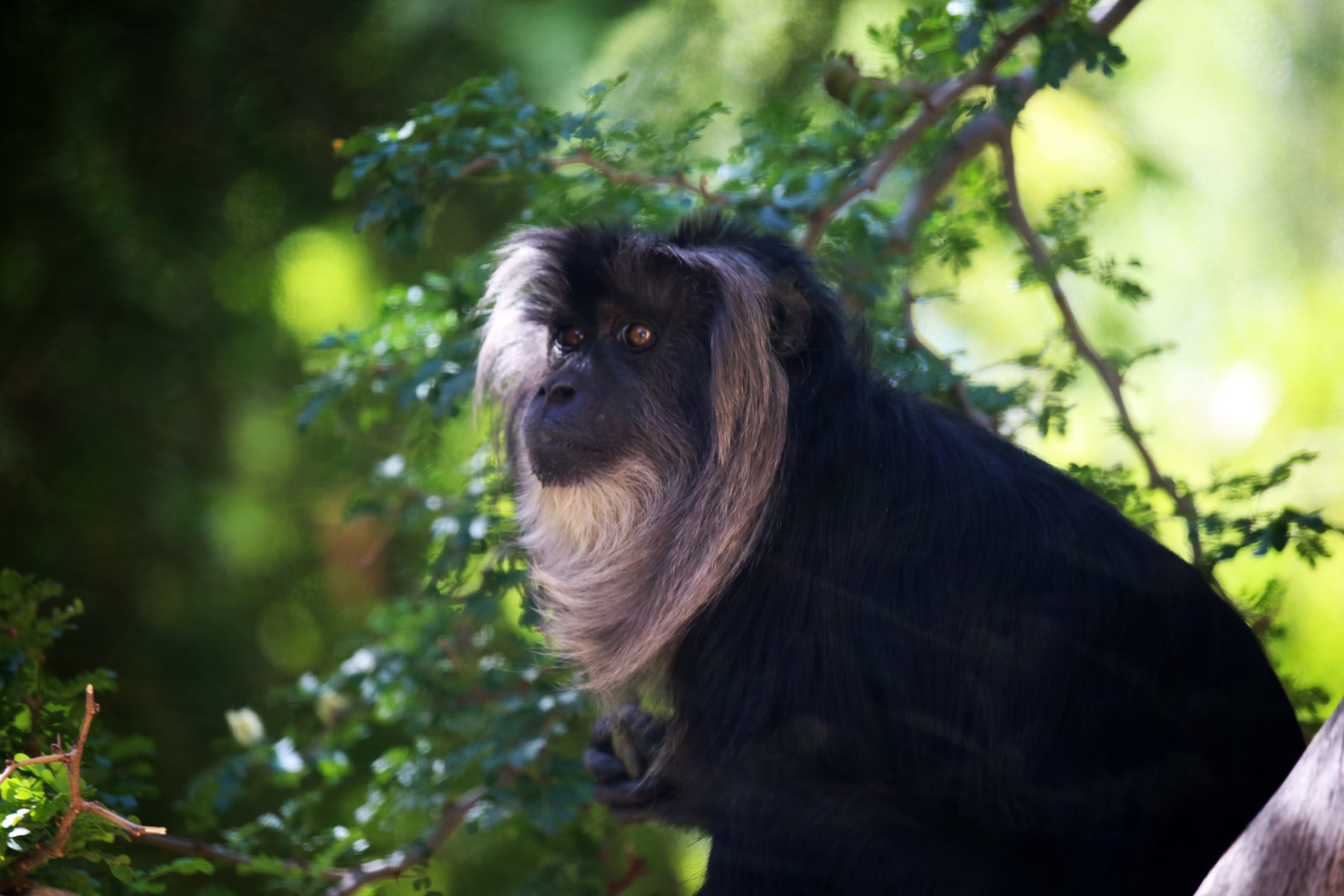The lion-tailed macaque is an Old-World monkey species with a non-prehensile tail. Their tail has a “tufted” tip, similar to that of a lion’s tail. Their coat is a black or dark gray, with a white to light gray around their face.
Diet: Lion-tailed macaques will feast on primarily fruits, but will also forage for nuts, seeds, young leaves, flowers, and even fungi species. Lion-tailed macaques will forage for food during the day, and can gather food in cheek pouches that can hold as much food as their entire stomach.
In the Wild: Mainly arboreal, lion-tailed macaques prefer the upper canopy trees of tropical rainforests, but can be found in other types of forests as well. They can even be found in areas with human-planted fruit trees such as Jackfruit, guava, passion fruit, and others. Their breeding season is during the monsoon season.
Conservation issues/actions: Lion-tailed macaques are increasingly rare to spot in the wild. This species is endangered and their population continues to decline. Major threats to the lion-tailed macaque include habitat loss and fragmentation, hunting, and the illegal pet trade. In many regions across the species’ habitat, deforestation for tea, eucalyptus, and coffee plantations occurs. Habitat loss resulting from logging, and wood-pulp plantations only worsens the problem. The species is additionally hunted for the meat market by locals, as well as for “medicinal” purposes. These threats, along with the seasonal changes in available resources, competition between females for mating opportunities, as well as the unique behaviors of macaques, further impact their population. By making more sustainable choices when buying products sourced from rainforests, such as wood or coffee, we can help protect the habitats that lion-tailed macaques and other forest species call home.
At the Zoo:
Here at the Reid Park Zoo, you can see our macaques spending a lot of their time grooming each other. Grooming is a behavior that not only helps determine rank in troops of primates, but also facilitates bonding. Additionally, you may notice that our animal care staff provides the macaques with various items ranging from browse, to scattered fruit and other produce, to fun decorated packages made by our volunteers. These fun and sometimes tasty items serve as enrichment to encourage natural foraging behavior.



